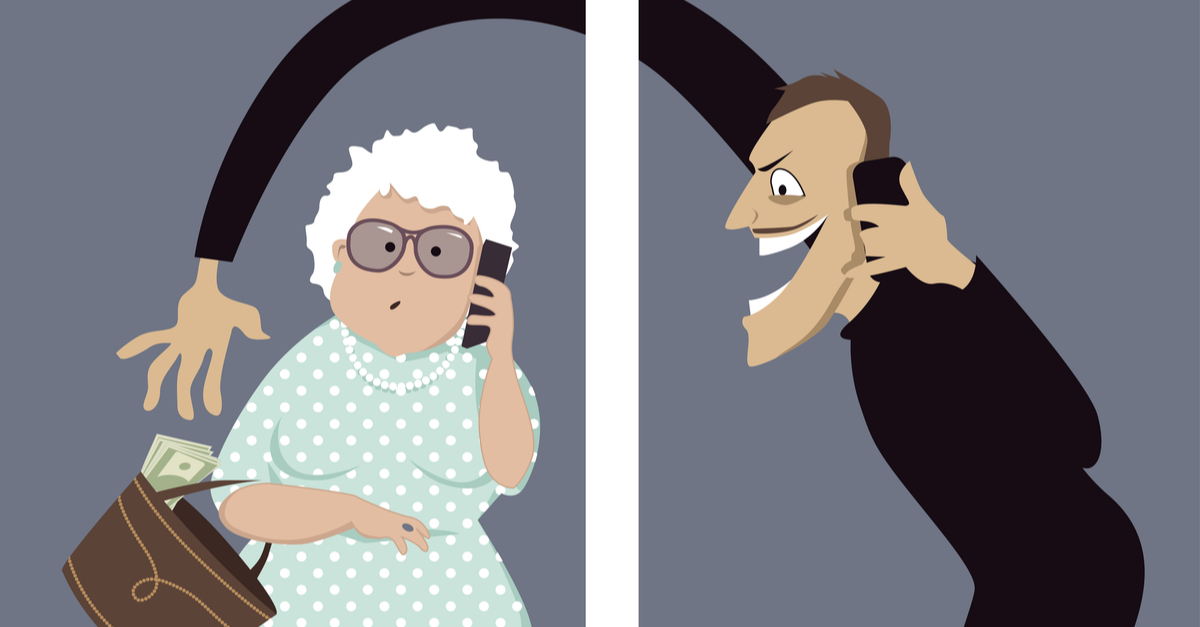Scams Rise in Trying Times
For many, the situation regarding COVID-19 is one that has brought many together despite the necessary need to self-isolate. Increased teamwork in work from home environments, video chats with friends, and many other means to keep contact have seen increased use as everyone comes together to try and keep spirits high during these confusing days.
While this renewed sense of community has brought help to many, not all have been so kind or thoughtful. People looking to profit off of people’s fears have taken to running scams that have tricked many into having their information and their money stolen. With there being so much already to worry about it can be frustrating and challenging to have to look out for along with all the other problems that we’re all dealing with.
It is important however, to recognize the signs of these scams to make sure that you are not being taken advantage of. Especially regarding the rise of telephone scams, its easy to fall prey to a call that sounds legitimate but is really the result of bad actors trying to take advantage of people looking for answers and help.
Spotting Telephone Scams
Knowing what to look for can make it easier to spot these phishing attempts and keep you and your organization safe.
Different scams will have different specifics that define them, but many of them follow a similar path: Get you to trust enough to interact with the scheme, and then take advantage of the compromised security to steal what they want.
Some of the things to look out for are as follows:
Calls About COVID-19
One of the more common scam calls are ones directly relating to coronavirus. They can come in a variety of forms, but they are often focused on these aspects of the pandemic:
- Calls that claim to be about treating COVID-19
- Calls about test kits for COVID-19
- Mysterious health insurance calls that claim to be selling or offer health insurance services
- Cures for the disease
There are others, but scams about coronavirus all center around the fear people have about the pandemic. For many, the fear of the disease might cloud otherwise reasonable judgment and make them more susceptible to these fraudulent calls because they want to find some solidarity in a very unstable time.
In many instances, health organizations like the CDC or others that are providing information on the pandemic will not be calling to try to sell you protection or solutions, nor will they ask you for protected information. If you receive calls like this and feel like there is a fraud at play, hang up immediately.
Taking Advantage of Financial Duress
Equally as sinister, scammers have taken to calling people and falsely presenting financial solutions. For many people, COVID-19 has created financial strain. Whether it is medical costs or needing to seek unemployment funding as they have been let go due to the virus, this is a period that has left many people in a perilous monetary situation.
Despite this, scammers still try to compound the problem further. Many of these calls center around things like loan forgiveness and refinancing, seeking to prey upon those that have these debts to lead them further into fiscal duress.
Like before these scams are making phishing attempts to try and get information to compromise your personal information, and very often banking or credit card info for their own purposes.
In the event you receive a call purporting some kind of financial assistance or forgiveness that you are unfamiliar with and are not expecting, do not give out any of your information. Likewise, if the call is from a robo-caller or other automated system, do not interact with their menus as doing so could lead to the scammers gaining access to your cell phone if that is the device they have called.
Playing the Classics
Many scammers are also just relying on classic scam call tactics. Posing as important government organizations, demanding that people call back now for nebulous reasons, etc.
These are designed to pressure people into calling numbers or responding to questions that could leave them vulnerable.
What to do When You are Facing a Scam Call
When facing what might be a scam call, there are several things that you can do to ensure a call is legitimate or not.
- Fact-check any information: Scammers will share unverified, and possibly even outright false information to try and get you to pass on their information or interact with their scam. Always verify and check any information that is being given to you. If any of it doesn’t line up or is outright false, it may be the result of a scam.
- Know who is calling you is also very important. If an organization is calling about something and you do not know who they are, or you work with another company or business for this particular issue, then it may be the case that a scam is afoot. Much like with information given, always do research on organizations claiming to represent a service or sell a product over the phone.
- If the caller claims to be speaking for a charity, always do your research about that as well. Awful as it sounds, there are many who seek good will donations in bad faith.
- Hang up on any automated calls. Don’t press any numbers, don’t respond for any verbal command prompts, as this may lead to more robocalls down the line.
- Ignore any online or phone-based offers about test kits for COVID-19, or home test kits, as scammers are trying to get people to purchase fraudulent products that are not proven to do anything.
How does this affect VOIP?
Several VOIP providers have come under fire during these times. By tracing the sources of these calls, they have been able to find out that several have come from VoIP providers that were aiding scammers and robo-callers that were making these fraudulent calls en masse.
This has led to action by both the FTC and FCC, who have taken a hard stance against these providers. They have issued warning letters to numerous VoIP providers. These warnings come with a harsh penalty that if these robo-callers and scammers don’t have their ties cut with the phone services that they will authorize providers to block traffic from them.
As a result, the amount of robo-calls and scammers should dramatically decrease as time goes on. After all, VoIP companies don’t want to lose their ability to conduct business because of a few bad clients. But it will always pay to remain vigilant in the case of future scams that arise.
In all these situations, as we discussed before, never give out your personal information under any circumstances until you have vetted and ensured that who you are talking to is from a reputable, trustworthy source. Only then should you allow that information to be given.
The views, knowledge, and information regarding coronavirus are all going to keep changing, and no doubt scams will as well. By keeping safe practices and a cautionary head on your shoulders though, you can avoid getting taken advantage of and protect your data and finances.











 in dallas. tx by
in dallas. tx by